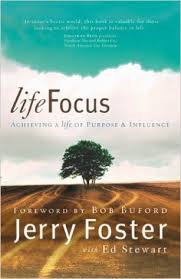Click here to return to Blog Post Intro

How to Get Where You Want to Go
Vector Principle: Achieving a desired outcome in your life is the result of consistently making positive choices that vector you toward that outcome.
Just as in an aircraft, the Vector Principle applies to our lives in the same manner. You are currently on a course that was determined by choices you have made. Most successful people rarely get where they want to go by radical 90- or 180-degree changes. Rather, they take one simple step after another in the right direction, make minor course adjustments over time.
Understanding the big picture is vitally important, but we live day to day. True personal wealth is achieved as we vector through life’s opportunities and challenges one at a time.
Myths about True Personal Wealth
How do you define success?
With success as the desired outcome, we make certain decisions that we believe will vector us in that direction. But success means different things to different people.
A lot of people measure success by achievement. They are driven to work harder, faster, and smarter; log more hours; and sacrifice other pleasures. Many success-driven people arrive at their destination disillusioned and unfulfilled. Take money and material possessions, for example. Whatever our income level, it never seems to be enough. At the root of the world’s view of success is the insatiable quest for more. Affluence is defined as “an abundant flow or supply”.
According to The New York Times on the Web, scientific research says, “Not only does having more things prove to be unfulfilling, but people for whom affluence is a priority in life tend to experience an unusual degree of anxiety and depression as well as lower overall level of well-being… Affluence, per se, does not necessarily result in an unsatisfying life. Problems are primarily associated with ‘living a life where that’s your focus.’ ”
Affluenza can best be described as a painful, contagious, socially transmitted condition of overload, debt, anxiety, and waste resulting from the dogged pursuit of more. We now work more hours each year than do the citizens of any other industrial country, including Japan.
95% of our workers say they wish they could spend more time with their families.
Begin measuring your success in terms of true personal wealth, which incorporates the whole of your life. If you choose true personal wealth, you must be intentional and purposeful in your desire to achieve success across the board in your life.
Are you holding it all together?
Millions of people across the country feel trapped in a day in, day out journey on a treadmill they can’t slow down or shut off. They are vectoring in a half a dozen directions at the same time. For these people, living is the frantic process of trying to hold it all together and make sense out of life. We yearn for a more balanced approach to schedule and responsibilities, but such yearnings are often steamrolled by the urgencies and emergencies of daily life.
Disintegrating Life Syndrome: Definition of disintegration is separating into parts, losing intactness, breaking up, deterioriating—an example description of so many today. Integrating Life, on the other hand, brings many parts into a unified, harmonious, interrelated whole. In their insightful article, “Juggling Life,” Thomas Addington and Stephen Graves provide us with an application of a juggler’s balance to the integrating life. They write, “Balance is the ability to continually recognize and juggle the multidimensional assignments and opportunities of life.”
Work-Life Balance is a misnomer. Balance is not static; it changes because our circumstances continually change. Since we all have blind spots, we must seek the wisdom and counsel of others who can help us see where our lives may be out of balance at any given time. We should schedule regular times of quiet evaluation and assessment with those who know us best: spouse, boss, trusted friend, minister, financial advisor. If we continually choose work over family, or community over self, or leisure over responsibility, at some point all the balls will hit the floor at once.
Imagine the satisfaction and fulfillment of knowing that you are vectoring toward success by amassing wealth, not only financially and materially but relationally, intellectually, emotionally, spiritually, and experientially.
The Path to True Personal Wealth
A Life Rich with Experiences
Definitions of wealth are virtually limitless, unique to every individual. When you begin to realize how multi-dimensional wealth is, you are in a position to discover the nature of true personal wealth. Here is Foster’s definition –
lifeWealth: The accumulation of financial, relational, physical, intellectual, and spiritual capital.
lifeFocus brings into balance the five dimensions of wealth accessible to every one of us:
- Financial Capital: Money, assets, and material possessions
- Relational Capital: People in your life: spouse, children, parents, siblings, extended family, friends, coworkers, neighbors, and acquaintances
- Physical Capital: Physical well-being: health, wellness, fitness, and recreation
- Intellectual Capital: Personal proficiencies: self-directed learning, job training, skill development
- Spiritual Capital: The place God & faith occupy in your life.
We all have an experience portfolio, which is like an invisible bank account in which your many life experiences, and your responses to them, are tallied. Life experiences include everything you do and everything that happens to you. All experiences, good or bad, can be a deposit in your experience portfolio. Be realistic. Bad things happen, even to good people. When you learn to look for the good in your bad experiences, you will have twice as much capital to deposit in your experience portfolio.
Your response to your bad experiences determines whether or not they will credit or debit your experience portfolio. A 92 year-old lady said, “Happiness is something you decide on ahead of time. Whether I like my room or not doesn’t depend on how the furniture is arranged…it’s how I arrange my mind. I already decided to love it…”
You must focus on progress, not perfection. Instead of lamenting what you don’t have, what you haven’t achieved, and how far you have yet to go, celebrate what you do possess, what you have achieved, and how far you’ve already come. Make a plan, work the plan, celebrate the victories, and learn from the setbacks.
Is your mentality to retire from something or to something? Is retirement the end or another, more exciting beginning? Life expectancy for retirees who just check out of work to do nothing is only about 8 years. Dr. Howard Hendricks observed, “The day your past becomes more exciting than your future is the day you begin to die.”
The Road to Personal Wealth
Ultimate payoff is your legacy, what you leave behind after your death—not only financial and material acquisitions but a significant, positive influence on others.
People tend to travel three different paths throughout life: the path of indifference, the path of indulgence, and the path of influence. Path of indifference is the one you will most likely travel if you just let life happen to you without taking an active role in where you’re going. Path of indulgence is a conscious choice to live for yourself instead of for others. The operative word for the self-indulgent lifestyle is consume. These individuals derive personal satisfaction from p,ensure, possessions, power, and prestige. You can enjoy life and its pleasures without being indulgent. It boils down to the attitude of the heart.
Strategies for lifeFocus
1. Focus Your Vision
It’s difficult—if not impossible—to accomplish anything of significance if you don’t have a crystal-clear vision for where you want to end up and a rock-solid plan for getting there. Where your purpose is anchored to something external, your passions erupt from within. What lights your fire? What touches your soul at the deepest level?
When Christ was asked about the “one thing” God seeks from us, he quoted Old Testament law, “Love the Lord your God with all your heart and with all your soul and with all your mind”. This is the first and greatest commandment. Those who have committed their lives to serving God place their financial, relational, physical, intellectual, and spiritual capital into God’s hands to use as he directs.
In order to bring your life vision into clear focus, you need to hear what your heart is telling you to do, not just where your head is telling you to go. What are your passions? Imagine yourself as a ninety year-old gazing back over your life. Which experiences and memories would bring you the most joy and satisfaction?
2. Live Purposefully
The ultimate responsibility for living out your vision by making timely vector changes rests on your shoulders. If you don’t pursue your purpose and passions with a plan of action, your vision will die from neglect. How do you move strategically in the direction of your vision? It’s largely a matter of intentionality—living your life on purpose.
You need to participate in the ongoing, cyclical process of assessing where you are, strategizing where you want to be, taking action on that strategy, and evaluating your progress.
Proactive people:
- Control spending on the basis of a budget.
- Initiate and nurture relationships based on your life vision.
- Monitor their own health and fitness.
- Continually look for ways to learn new skills and improve their performance.
- Seek to know God and explore his claim on their lives.
lifeFocus process (ASAP): assessment, strategy, action, progress
- Assessment: Periodically you need to look at where you are in light of where you want to be.
- Strategy: Once you have an idea where you are on the journey, chart a course to your destination.
- Action: You can assess and strategize all you want, but until you act on your plan, you will be no closer to realizing your vision.
- Progress: Remember, if you continually measure yourself by how far you have to go, you will be disappointed. But if you turn around and see how far you have come, you will see progress.
Proactive living is creating a strategy for mapping out a course in all dimensions of life and moving ahead with that course.
3. Equip for Success
From the parable of the 10 bridesmaids, Jesus says to us, “Don’t get lazy and squander your opportunities for living out your vision. Rather, stay alert and be prepared to make the most of every opportunity, because you don’t know how much time you have left.”
Equip yourself continually for success by:
- Always keep learning about yourself, your abilities and your particular areas of expertise and service to others.
- Continually tap your experience portfolio to help you interpret and resolve new experiences.
- Enlist and rely upon a team of helpful and supportive individuals.
- Work to balance how you allocate your time in relation to your priorities.
You can do one thing in life to virtually guarantee your failure: try to make it on your own. If you are not continually sharpened by people who care for you and are committed to your success, you will become a useless and dull knife. Each of us needs a team of people to help us stay on track and encouraged as we live out our vision. The more people you have around you to sharpen you, the more effective you will be. If you are married, the first person on your support team should be your spouse.
No matter how clear your vision may be to you, your family should be on board and supportive of your direction. If they are not up to your speed, slow down and wait for them. It is better to move toward your vision at a slower speed than to leave those dearest to you in your wake.
Accountability partners care enough about each other to ask the tough questions. Meet with this core group regularly, at least a couple of times a month. Share your ongoing vision with one another, both the successes and failures. Affirm each other, encourage each other, and challenge each other to hang in there.
4. Give from the Heart
In The Generosity Factor, C. Truett Cathy shares the secret of his success with Ken Blanchard: “Time. Talent. Treasure. Touch. Nothing more than those four. The beauty of it is, there are so many ways to give them. The tragedy is that so few people discover ways to one—let alone four.” A key strategy to acquiring true personal wealth is to give generously to others what you have.
True personal wealth is more about realizing deep fulfillment and satisfaction than about accumulating things. Jesus uttered the familiar words, “It is more blessed to give than to receive.” Generosity is not related to how much or how little you have; it’s about your attitude toward what you do have. We have great capacity to be generous with our love, kindness, and caring for others.
The way we spend our money reveals what is important to us. Jesus said, “Where your treasure is, there your heart will be also.”
Don’t let anybody mislead you with the lie that quality time with people is better than quantity time. In reality, quality comes out of quantity. When I sat down with my children intending to “make quality happen,” it usually didn’t. But when one of the kids and I were out running errands or attending a ball game or working on their homework, we often ended up spending some quality moments together.
Becoming an asker is a prime way to invest yourself in others. People are encouraged when someone draws them out, listens to what they say, and demonstrates genuine interest.
Give God time at the beginning of each day through prayer and Bible reading. Be sure to set aside one day a week—Sunday is perhaps the best day—to rest from work and charge your spiritual batteries in fellowship with others. It’s difficult to connect with God unless we slow down, quiet down, and listen to Him. Our Creator invites us to “be still, and know that I am God.”
An attitude of generosity springs from a thankful heart. And we can only be thankful when we step back and count our blessings. Take inventory of your life and notice what you have. Then realize how little it would be without the help of God and many others who generously helped you get where you are.
5. Enjoy the Journey
You will mess up along the way because everybody messes up. We are all subject to mistakes, selfishness, impatience, intolerance, greed, hatred, jealousy, laziness, and envy.
Contentment is not resignation. At times, you will be tempted to give up. True contentment is available in the midst of the journey, even when it is difficult. Contentment is not complacency—self-satisfaction that it’s good enough. Contentment is not indifference—the absence of emotion, concern, ambition, and drive.
Paul possessed a rock-solid inner strength completely independent of his circumstances—contentment. This core element allowed him to view both triumphant victories and crushing defeats with a level head and peaceful heart. Contentment allows you to keep moving forward no matter what life may throw at you.
It is difficult to achieve contentment in a culture in which enough is never enough and more is always better. Paul’s formula for success in the material world is to put God first and be content with what you have—be it little or much. When you can experience the same contentment with little or much, you are in a great position to funnel more of your material resources to meet the needs of others.
Relational contentment begins with three basic elements:
- You need a mentor. At least one trusted, mature individual who is willing to share his or her guidance, wisdom, advice and instruction with you.
- You need a friend. Along with a wise mentor, you need a committed friend among your relationships. While your spouse should fill the role of your closest soul mate, I suggest you develop at least one deep, encouraging friendship with someone of your sex.
- You need a protege. Another bare essential for contentment in a life of influence is at least one relationship in which you are a source of influence to someone in whom you can pour your life.
Contentment in any area of lifeWealth capital is never a product of comparison to others. Since we are talking about a life of influence, I believe it is important to do whatever we can to sustain a long, healthy life. The longer you live and the healthier you remain, the more people you will be able to benefit through your unique abilities and vision for influence.
Intellectual contentment results as you accept your God-given abilities and carry out your role wholeheartedly as if doing it for God. We should always be growing and maturing in our relationship with God.
Be clear about where you want to go. As best-selling author Stephen Covey says, you must “begin with the end in mind.” In the words of wise King Solomon, “Lazy hands make a man poor, but diligent hands bring wealth.” If you don’t get on the road and busy yourself with the task of living out your vision, you will never enjoy the rewards of true personal wealth.



